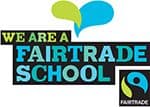S5/S6 Higher Computing Science
Course Overview
The Higher Computing Science course builds on the work done in N5 Computing Science. Candidates should have achieved the National 5 Computing Science course prior to starting this course.
The course consists of 3 units:
- Computer Systems
- Web Design & Development
- Software Design & Development
Computer Systems
Candidates develop their understanding of how data and instructions are stored in binary form and factors affecting system performance. They gain an awareness of the environmental impact of intelligent systems, as well as the security risks, precautions and laws that can protect computer systems.
Web Design & Development
Candidates develop knowledge, understanding and advanced practical problem-solving skills in web design and development. They do this through a range of practical and investigative tasks. Candidates apply computational-thinking skills to analyse, design, implement, test, and evaluate practical solutions to web-based problems, using a range of development tools including HTML, Cascading Style Sheets (CSS) and JavaScript. Candidates apply interpretation skills to tasks involving some complex features in both familiar and new
contexts.
Software Design & Development
Candidates develop knowledge and understanding of advanced concepts and practical problem-solving skills in software design and development. They do this by using appropriate modular software development environments. Candidates develop modular programming and computational-thinking skills by analysing, designing, implementing, testing, and evaluating practical solutions and explaining how these programs work. They use their
knowledge of data types and constructs to create efficient programs to solve advanced problems.
Skills, Knowledge and Understanding
The following provides a broad overview of the subject skills, knowledge and understanding developed in the course:
- applying computational thinking to understand problems across a range of contexts
- analysing problems with some complex aspects within computing science across a range of contemporary contexts
- designing, implementing, testing and evaluating digital solutions (including computer programs) to problems with some complex aspects across a range of contemporary contexts
- developing skills in computer programming and the ability to communicate how a program works by being able to read and interpret code
- communicating understanding of advanced concepts related to software design and development, and information system design and development, clearly and concisely, using appropriate terminology
understanding and evaluating the legal and environmental impact of contemporary computing technologies - applying computing science concepts and techniques to create solutions across a range of context
Methodology
Teacher-led discussion and cooperative group work are used to give pupils the opportunity to demonstrate and improve their knowledge, understanding and practical skills throughout the course.
Assessment
The course assessment has two components:
- Question paper 80 marks (2 hours)
- Assignment 40 marks
The question paper consists of:
- Section 1 – Computer Systems and Software Design & Development questions (55 marks)
- Section 3 – Web Design & development questions (25 marks)
The assignment is open book and completed in class under teacher supervision. This is completed over a number of sessions totalling 6 hours. It consists of:
- Software Design & Development tasks (25 marks)
- Web Design & Development tasks (15 marks)
Recording & Reporting
All pupil assessments are routinely graded and recorded by the teacher and the results are stored centrally, these results are used by staff to track the progress of the individuals and ensure that their needs are being met. Pupils also review their own attainment and are encourage to identify ways to improve their learning. Staff report formally to parents as per the school calendar.
Miss Stalker / Mr Lodge
Synopsis booklet paper copies can be accessed by students throughout the year / each student has their own copy. All class resources are uploaded onto Microsoft Teams and can be accessed anywhere.
Make use of the following resources to support Home Study:
Useful Revision Web Sites:
https://www.bbc.co.uk/bitesize/subjects/zxmh34j
online revision materials & tests
past papers & solutions
practical exercises (HTML, CSS, Python, SQL)
online revision materials
Resources
Higher Synopsis booklet will be available using an S5/6 pupil MS365 account by August 2016.
Quicktime videos of the presentations used in class will be available using an S5/6 pupil MS365 account by August 2016.
Other resources
BBC at http://www.bbc.co.uk/education/subjects/zxmh34j
Scholar at http://courses.scholar.hw.ac.uk/vle/scholar/session.controller?action=logout
YouTube at https://www.youtube.com/channel/UCAcajO6To1ZHx0OpvGe1NAw





